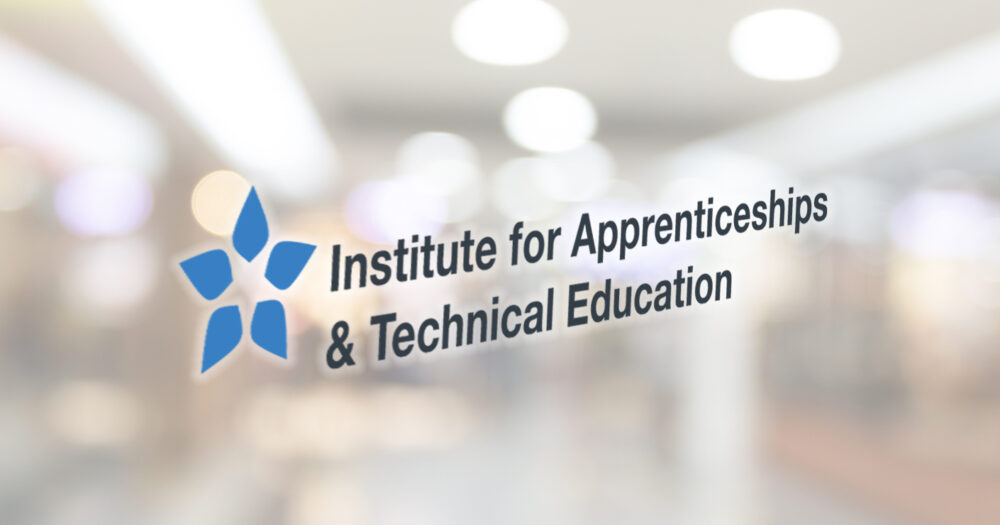It has never been more crucial that we ensure that we have the best regime possible to assess quality, says Sir Gerry Berragan, chief executive of the Institute for Apprenticeships & Technical Education
Our mission at the Institute for Apprenticeships & Technical Education is to develop high-quality apprenticeships and technical qualifications in order to transform the skills landscape.
Quality is rightly at the heart of this. If employers and apprentices do not believe that apprenticeships are a highquality product which provide the skills that are needed across the economy, then the ongoing reform work of recent years will have been in vain.
As part of my role as chief executive at the institute, I chair the Quality Alliance, which brings together the government organisations responsible for different aspects of apprenticeship quality, as well as the key representative bodies for training providers and end-point assessment (EPA) organisations.
Earlier this year the Quality Alliance published the Quality Strategy, which sets out 14 statements of best practice across all facets of apprenticeship delivery. Our next step will be to develop an action plan to sit below this strategy, which will set out what actions each alliance member is taking to support the strategy.
I was delighted that Anne Milton, skills minister, was able to attend our most recent meeting and discussed with members the next steps on embedding quality across all levels of apprenticeship provision.
One focus for the institute is the external quality assurance (EQA) arrangements for end-point assessment. The institute has a statutory responsibility to ensure that EQA is delivered, as well as providing EQA ourselves (through our delivery partner, Open Awards) where we are selected by the trailblazer.
Independent EPA is fundamental to the success of the apprenticeship reform programme and as volumes increase it is right that we step back and assure ourselves that we have the optimal regime in place to qualityassure this assessment.
Independent EPA is fundamental to the success of apprenticeship reform
Over the course of the spring the institute has been undertaking a programme of work to put in place a strengthened operational framework for EQA, including a digital service to manage the interface between the institute and EQA providers. Both of these will allow us to better exercise our statutory duty and bring greater consistency. This is still in draft form and is currently being shared with EQA providers and end-point assessment organisations before it is due to be finalised and made public.
We have built the framework around five principles. We want EQA to be: relevant; reliable; efficient; positive; and learning. At the core of this sits the concept of occupational competence. EQA must give us assurance that EPA is not just a well-administered test, but a relevant, reliable assessment of the knowledge, skills and behaviours that apprentices need in order to perform in their chosen occupation – from commis chef to actuary to plasterer.
To do all of these things, EQA must be timely and proactive, not retrospective and reactive. It must involve people with expert knowledge of the areas being assessed witnessing assessment taking place, and it must involve some reach back to employers and apprentices after completion, to externally validate their training and assessment – to confirm their satisfaction with the level of occupational competence achieved.
But if the principle of relevance is important, so too is efficiency. We need a system that doesn’t impose undue burden on EPA organisations and is easy for all parties to understand and engage with.
So I have also written to the chief executives of Ofqual and the Office for Students to ask them to bring forward proposals for how their organisations can work with employer groups and professional bodies to provide an optimised EQA process.
A strengthened EQA system will give employers confidence that EPA is a relevant and reliable assessment of occupational competence. That is an important function and one that the institute will continue to work with other regulatory bodies in government, and professional bodies, to deliver.









Your thoughts